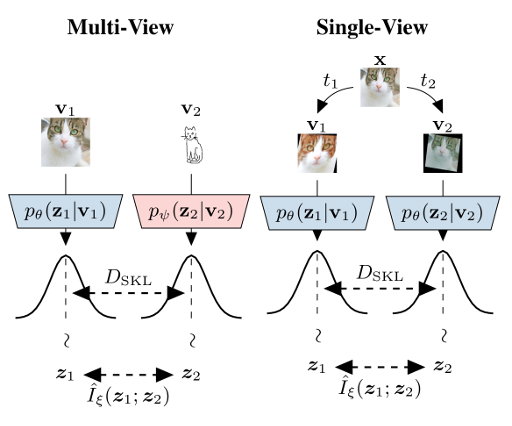Learning Robust Representations via Multi-View Information Bottleneck
The information bottleneck principle provides an information-theoretic method for representation learning, by training an encoder to retain all information which is relevant for predicting the label while minimizing the amount of other, excess information in the representation. The original formulation, however, requires labeled data to identify the superfluous information. In this work, we extend this ability to the multi-view unsupervised setting, where two views of the same underlying entity are provided but the label is unknown. This enables us to identify superfluous information as that not shared by both views. A theoretical analysis leads to the definition of a new multi-view model that produces state-of-the-art results on the Sketchy dataset and label-limited versions of the MIR-Flickr dataset. We also extend our theory to the single-view setting by taking advantage of standard data augmentation techniques, empirically showing better generalization capabilities when compared to common unsupervised approaches for representation learning.
PDF Abstract ICLR 2020 PDF ICLR 2020 Abstract



 Sketch
Sketch